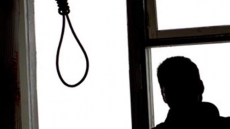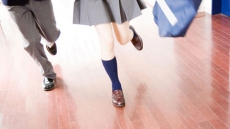(Photo: Khalsa Aid volunteer providing aid to Rohingya refugees)
The UN refugee agency on Tuesday urged countries to double their aid to nearly half a million Rohingya refugees who have fled to Bangladesh from violence in Myanmar, warning that hardship in the packed refugee camps could worsen further.
UNHCR estimates some 436,000 Rohingya refugees have reached Bangladesh from Myanmar's Rakhine state since August 25 when Rohingya insurgents attacked Myanmar police posts, prompting security forces to launch a counter-offensive which the UN has described as "a textbook case of ethnic cleansing".
Rohingyas including women and children and the elderly continue to stream across the border into Bangladesh, weakened and deeply traumatised after walking for days through forests, rice paddies and jungles to reach safety and are now crowded into existing camps or are staying at makeshift sites.
"Shelter needs in Bangladesh are acute," UNHCR spokesperson Adrian Edwards told journalists in Geneva.
At the request of the Bangladesh authorities, UNHCR and its partners have ramped up humanitarian aid to newly arrived refugees in the established Kutupalong and Nayapara refugee camps and are helping people in the "informal settlements" that have sprung up around these camps, Edwards stated.
"As the population in the Kutupalong and Nyapara camps have now doubled, so have the needs for clean drinking water," he said, noting that UNHCR had built seven deep tube-wells, 13 shallow tube-wells, and 116 latrine chambers in the two camps there in the last few weeks.
UNHCR on Tuesday flew its fourth humanitarian airlift into Dhaka containing 100 tonnes of shelter materials and two further aid flights are being scheduled, Edwards said.
The agency is also distributing emergency shelter kits, kitchen sets, jerry cans, sleeping mats, solar lamps and other non-food items to the refugees, whose needs outstrip currently available aid, Edwards stated.
"Despite every effort by those on the ground, the massive influx of people seeking safety has been outpacing capacities to respond and the situation for these refugees has still not stabilised," he noted.
Unaccompanied children, women, elderly and disabled refugees remain especially vulnerable and in need of urgent need of shelter, food, water, and healthcare, according to UNHCR.
UNHCR and its partner organisations are providing an average 9,900 people with meals every day through community kitchens, plus 2,600 other hot meals and energy biscuits for 4,700 people, the agency said.
The immediate focus of the relief effort must remain on fast, efficient and substantial increase of aid to Rohingyas who are in dire need, UNHCR chief Filippo Grandi said during a visit to Bangladesh at the weekend.
During his visit, Grandi underlined importance in the longer term of working with Bangladeshi authorities to find solutions for the Rohingya, a stateless mostly Muslim ethnic minority who have long faced persecution in Rakhine.
Bloody riots in 2012 forced over 100,000 to flee to refugee camps in southeast Bangladesh, where many still live.




